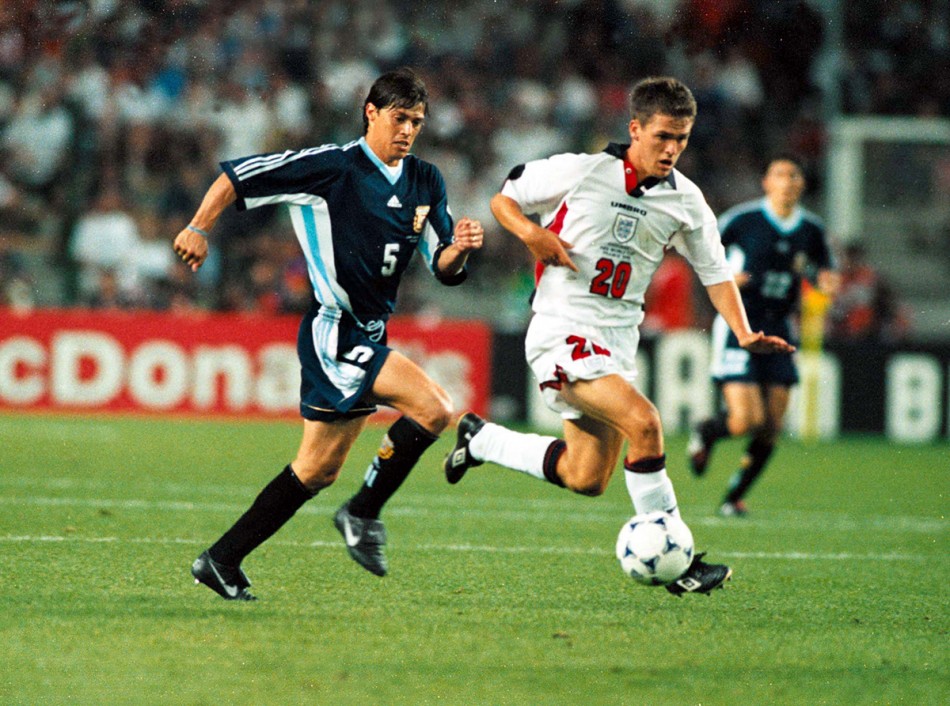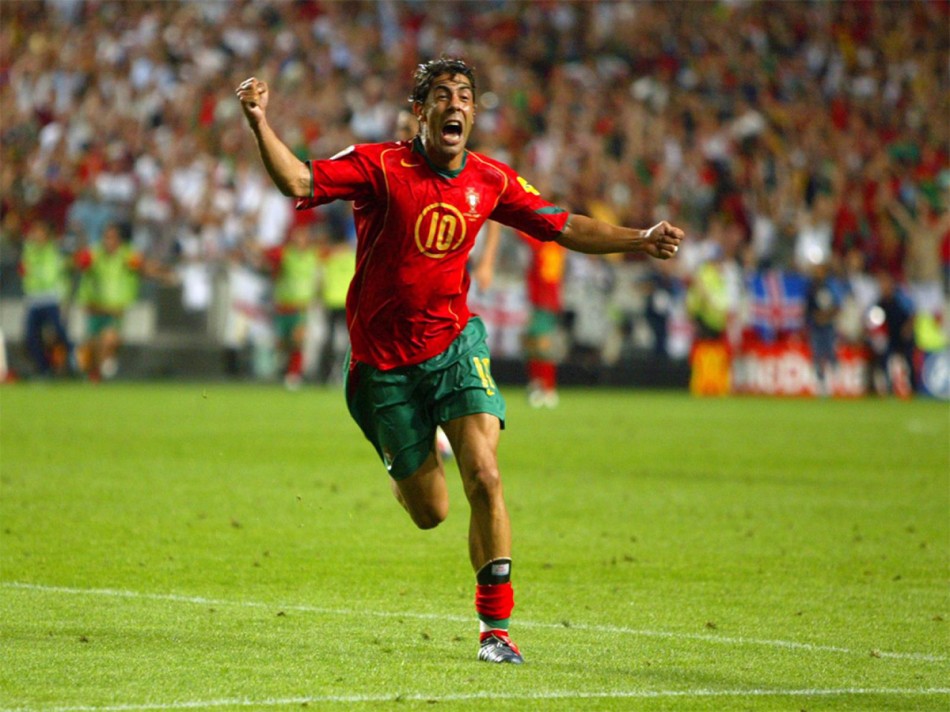Spring is approaching, and true to tradition in World Cup years, serious injuries are beginning to afflict England players faster than you can say “metatarsal.” Unsurprisingly, Michael Owen is among the first to be sidelined. The Manchester United striker has embarked on a slow and sad transformation from master goalscorer to chronic invalid, and today it was announced that he will miss the remainder of the season with a torn hamstring. Owen picked up the injury during United’s Carling Cup Final victory over Aston Villa at Wembley last Sunday. A scan has revealed that what was initially thought to be a slight pull is in fact a full tear, for which the 30-year-old will undergo surgery on Monday, effectively ending the his already slim hopes of making a return to Fabio Capello’s England squad in time for this summer’s tournament in South Africa.
The news comes less than a month after a fractured left ankle jeopardized Ashley Cole’s participation in the World Cup, but for Owen it’s an even bitterer blow: after all, this was supposed to have been his comeback season, in which he would rediscover the form that made him one of Europe’s deadliest marksmen, and hopefully earn a recall to the England squad. At least, that was the plan. It’s just the latest disappointment in a career which in recent years has been defined by long-term injury. This week’s torn hamstring is the tenth severe physical set-back Owen has suffered since he left Liverpool, an endless series of career interruptions which have included a calf strain, three thigh strains, two operations on a broken metatarsal, a concussion, mumps, as well as the injury to the anterior cruciate ligament which put an end to his last World Cup in 2006.
It now appears Owen’s transfer to Real Madrid in the summer of 2004 proved to be a significant turning point in the player’s fortunes. Having waved goodbye to Anfield in part due to Liverpool’s repeated failure to win major trophies, Owen must have felt a slight twinge as he watched his former teammates achieve Champions League success in their first season without him, particularly since he now found himself habitually confined to the bench at the Bernabeu. In 2005, with the World Cup less than a year away, the arrival of Robinho and Julio Baptista at Real prompted Owen to seek first-team football elsewhere. Newcastle United certainly seemed a step backward for the 2001 Ballon d’Or winner, and Owen’s spell on Tyneside was characterized by indifferent performances and erratic fitness, not to mention an unstable St. James’ Park boardroom and management.
In the summer of 2009, following Newcastle’s relegation from the Premier League and the conclusion of his contract with the Magpies, Owen chose Manchester United as the ideal platform from which to relaunch his career, with the ultimate goal of reclaiming his place in the national team. The move to Old Trafford certainly raised some eyebrows. Many fans felt Sir Alex Ferguson was taking an unnecessary gamble, and expressed concern regarding Owen’s inconsistent form and susceptibility to injury. But the season began promisingly. A last-gasp winner in a thrilling 4-3 derby victory over Manchester City and a hat-trick against Wolfsburg in the Champions League suggested that United’s risk may just pay off. But since then Ferguson has used Owen fleetingly, and Fabio Capello has been clear in his need for players who are playing regular league football.
Owen scored United’s opening goal last Sunday after only twelve minutes, before the hamstring went and he was forced to limp off before half-time. It leaves Ferguson with a severely depleted forward-line for the rest of the season, with Wayne Rooney’s remarkable recent form scant consolation. Fabio Capello’s World Cup plans are unlikely to be affected: Owen has featured only sparingly since the Italian took over as England coach. Bookmakers are already quoting 1-8 odds against Owen ever pulling on the national jersey again. Owen’s international record currently stands at 40 goals in 89 matches, making him the 7th most capped England player of all time. Only Bobby Charlton, Gary Lineker and Jimmy Greaves have scored more goals for their country.
If Owen has played his last game for England, it will be a truly sad end for a player who promised much more than he ultimately achieved. Though he worked hard to give himself, his team and country another shot, the odds were always stacked against him. There are those that will say that he’s lost his pace, and that he may not have made Capello’s squad even had he been fit, both of which are valid, sobering points. But for a few years, Owen was as vital a goalscorer for England as Lineker had been a decade earlier. His hat-trick in the 5-1 mauling of Germany in Munich and his goals in the quarter-finals of World Cup 2002 and Euro 2004 remain fresh in the memory, not just for their spectacular opportunism but for their power to make fans believe that anything was possible with him in the side. How Owen’s stuttering demise plays in stark contrast to his fairytale introduction to the world, on a warm night in Saint-Etienne twelve years ago. Not even Paul Gascoigne or Wayne Rooney can claim to have enjoyed such an explosive impact on such an important global stage. No England fan can forget the blurry image of a boyish Owen fizzing across the screen, leaving several Argentine defenders in his wake to score one of the finest goals in World Cup history. That hungry teenager may be all grown up, but one can’t help feel he deserved one more chance to run at them.

